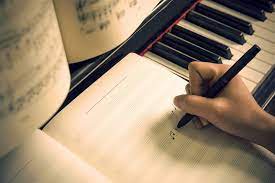The process of creating music criticism is a wonderful opportunity to learn what music does for the listener and the world at large. It is one of my favorite mediums to write reviews for, I have been doing so for over 20 years now.
Throughout my process as a writer, authenticity remains one of the most important aspects of my criticism. I do not want to create music critiques (or reviews for any other medium) in ways that are inauthentic. I think it is important to speak the language that is associated with particular mediums. For music, that would suggest that using the vernacular of music theory would be a great way to connect readers to what the music and the artist(s) are conveying through sound and live performance.
Doing some self-analysis on many of the reviews that I have written over the past couple years, I would say that I am good at listening, learning and asserting ideas that correspond with the music. However, I think I can make my writing better by using some of the terms found in music theory.
Lately, I have been studying music theory and have been playing short songs on the keyboard. This is something I need to do in order to open up my creative mind. I think if I can get a grip on the concepts of music theory, it can increase my authenticity and make my writing better.
I am having a blast so far; it’s been such a long time since I’ve studied music theory. I played keyboard/piano when I was a kid, but I noticed at that time I was intensely focused on memorizing which finger goes with what key. So, everything I played pretty much came from muscle memory that was developed over hours of practicing.
Now, when I look at a sheet of music I am not so much thinking about my fingers; at this point I am studying the bass clef and treble clef, and trying to familiarize myself with how each note functions within a piece of music. My ultimate goal is to figure out how to describe the sounds of the notes in ways that readers will connect with and develop an appreciation for.
As I continue to learn, readers can expect that my music reviews will start to feature the ideas that I usually write about but also guide them to the beauty of the notes, the pleasing sounds of the chords, the beautiful quality of the melodies, rhythms, and scales. The more comfortable I get with these concepts; I believe that I can make better music criticism (and hopefully learn a few songs along the way).
I also use the music criticism format that is taught in academia: (1) listen to the music, (2) introduce background information, genre and release date, (3) short paragraphs for lyrics, vocals, instrumentation and performance.
I add a couple of other elements to the traditional format: (4) what makes the music unique, (5) can you discover what may be the artist’s inspiration or does the music inspire you in any way, (6) discover and assert how the music functions within the world and why we should listen to it.
I look forward to learning as much as possible and getting back to reviewing songs and albums. I am also looking forward to seeing how readers respond to the collaboration between concepts of music theory and ideas derived from the music.

